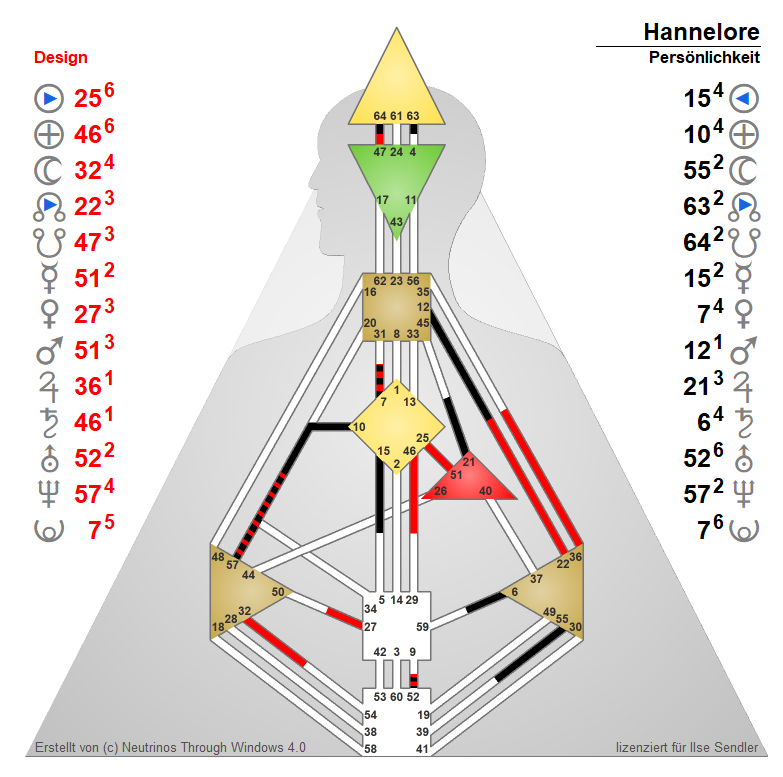As we mature as Manifestors, because we’re locked into what is an extremely difficult role in the sense that the onus is on us to initiate, and yet at the same time the vast majority of Manifestors are addicted to the Sacral Center and function fundamentally as Generators. They look a lot like Manifesting Generators in the way in which they behave and the way in which their energy operates.
And without recognizing it, without understanding the kind of impact that they’re having, because most of the impact that the Manifestor is aware of, the only impact they’re ever really aware of is what happens to them when they meet resistance, that thing that gets in the way. There is always that thing that gets in the way that creates that annoyance.
And it’s only then that they realize there are forces that can be opposed to them, that there are forces that are going to be influenced by their activity, that child, that Manifestor child that the mother is never taking her eye off that child. They’re not. Where any of the other Types can get away with not being accountable, Manifestors cannot get away without being accountable. The Manifestor making any kind of movement is going to attract notice.
Think about it. This is the thing about being a Manifestor. You’re wrapped up in your Manifestor thing. And while you’re wrapped up in your Manifestor thing, you forget, literally, that everything you’re doing has an impact that is going to go out there in a motion and affect other beings in your life. It doesn’t matter who they are. It doesn’t matter what the circumstances are. It is part of what it is to be a Manifestor.
Manifestor makes the whole idea of everyone being dependent and codependent, well, puts holes in it; makes a lot of people very uncomfortable. This is one of the things that you live with as a Manifestor. And you have to see that the moment you do anything, everybody else who has ever wanted to do that has failed at that because they met resistance.
– Ra Uru Hu
„Wenn wir als Manifestoren reifen, liegt das daran weil wir in eine äußerst schwierige Rolle eingebunden sind. Die Verantwortung liegt bei uns, zu initiieren, und dennoch ist die überwiegende Mehrheit der Manifestoren süchtig nach dem Sakralzentrum und funktioniert im Wesentlichen wie Generatoren. Sie sehen in ihrem Verhalten und in der Art und Weise, wie ihre Energie funktioniert oft aus wie manifestierende Generatoren.
Nämlich ohne dies zu erkennen, ohne zu verstehen, welche Art von Einfluss sie haben, weil der Manifestor sich der meisten Auswirkungen die er hat gar nicht bewusst ist. Das Einzige, was sie wirklich wahrnehmen, ist, was passiert, wenn sie auf Widerstand stoßen, auf etwas, das ihnen im Weg steht. Es gibt immer dieses Etwas, das im Weg ist und diese Verärgerung hervorruft.
Erst dann erkennen sie, dass es Kräfte gibt, die sich ihnen entgegenstellen können, dass es Kräfte gibt, die von ihren Handlungen beeinflusst werden. Das Manifestor Kind – das Kind, das die Mutter niemals aus den Augen lässt. Niemals. Während sich jeder andere Typ erlauben kann, sich der Verantwortung zu entziehen, können Manifestoren sich das nicht erlauben. Jede Bewegung, die ein Manifestor macht, wird bemerkt.
Denken Sie darüber nach. Das ist die Sache des Manifestor-Seins. Man ist so in sein Manifestor-Dasein eingebunden, dass man buchstäblich vergisst, dass alles, was man tut Auswirkungen hat, die sich nach außen hin bewegen und andere Menschen in deren Leben beeinflussen werden. Es spielt keine Rolle, wer sie sind. Es spielt keine Rolle, unter welchen Umständen es geschieht. Es ist ein Teil davon, was es bedeutet, ein Manifestor zu sein.
Der Manifestor wirft das ganze Konzept von Abhängigkeit und gegenseitiger Abhängigkeit über den Haufen; er bringt Lücken hinein, viele Menschen fühlen sich unwohl in seiner Gegenwart. Das ist eines der Dinge, mit denen man als Manifestor leben muss. Und man muss erkennen, dass in dem Moment, in dem man etwas tut, alle anderen, die jemals dasselbe tun wollten, daran gescheitert sind, weil sie auf Widerstand gestoßen sind.“
– Übersetzung mit KI, edit Hannelore Ehrlich)

Um Ihnen ein optimales Erlebnis zu bieten, verwenden wir Technologien wie Cookies, um Geräteinformationen zu speichern und/oder darauf zuzugreifen. Wenn Sie diesen Technologien zustimmen, können wir Daten wie das Surfverhalten oder eindeutige IDs auf dieser Website verarbeiten. Wenn Sie Ihre Zustimmung nicht erteilen oder zurückziehen, können bestimmte Merkmale und Funktionen beeinträchtigt werden.